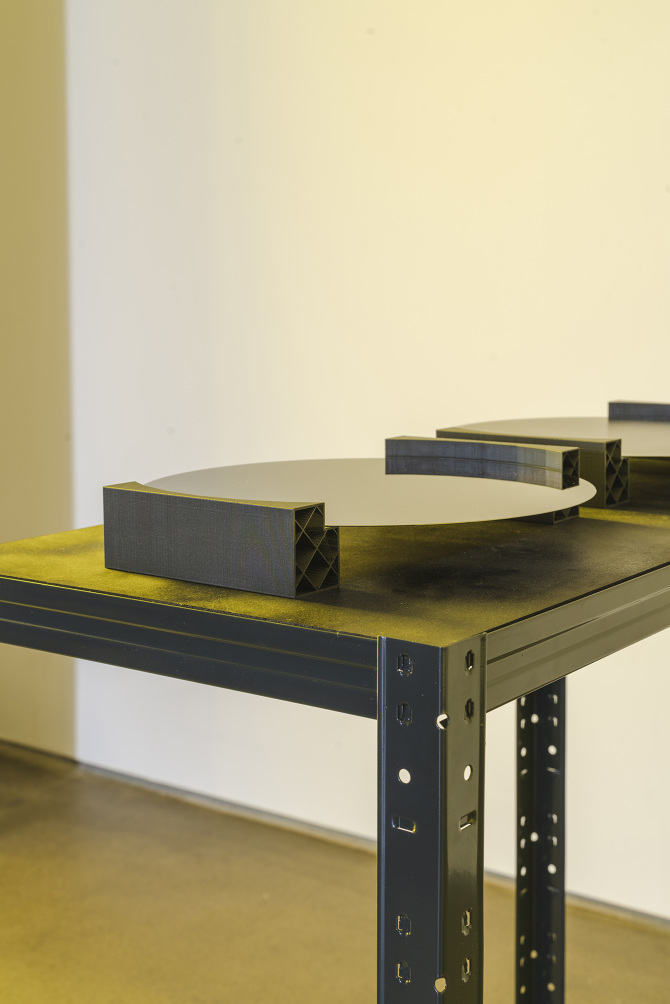Internationally sought-after semiconductors require tons of water for their production. But where does the water come from? And who gains access to it and on what terms?
Advanced semiconductors are largely manufactured at the Taiwan Semiconductor Manufacturing Company(TSMC). However, the profit growth of TSMC is much more predictable than the rainfall in Taiwan in the past decades. Su Yu Hsin addresses the water network in Hsinchu, Taiwan in her video Particular Waters which is accompanied with four dummy wafers imprinted with ocean satellite imagery. With an environmental focus, she underscores the complexity of global semiconductor supply chains from the perspective of water and scale. Insights gained through field research in collaboration with Prof. Ya-Chung Chuang of the National Yang-Ming Chiao Tung University, the hydrosocial engagement of semiconductor manufacturing and its ecological consequences are strongly incorporated into her artistic work.
Computer chips are hard to see, politically and materially, even though the pandemic shed light on their supply chains. In her popular manifesto, Donna Haraway brings up the working conditions of “ women in the integrated circuit ” and places the chip in a history of governance and exploitation. “ The silicon chip is a surface for writing…Writing, power, and technology are old partners in Western stories of the origin of civilization, but miniaturization…has turned out to be about power.” Microchips have since become the most expensive part in smartphones and a signifier for global capitalism and the current state of world politics. Following Haraway and updating her feminist approach to computing technologies, artist Su Yu Hsin explores historical and material avenues to critique the massive consumption of resources involved in the making of chips. Her focus is on water. In one narrative sequence in her film, she shadows a female worker at TSMC (Taiwan Semiconductor Manufacturing Company), the world’s largest chip manufacturer in Taiwan, founded in the late 1980s by Morris Chang, who for several decades had worked with Texas Instruments. His business model was to offer semiconductor manufacturing as a service.
The protagonist in Particular Waters, a research-based fiction film, is a truck driver transporting water from other areas to the factory – as TSMC did during the drought induced by climate change in 2021 – and back to the banks of the Toucian River. In the course of this sensitively scripted film, the driver disobeys her instructions – performing an act of resistance for the actual benefit of humans and nature ( something the film highlights rather than pointing in the abstract to the legal controls that need to be applied to industrial water usage). Global telecommunications and the AI industry rely on TSMC for the scale and precision of its product, while at the same time, owing to tense US-China relations, there is a shift toward onshoring production and (re)establishing manufacturing sites in the US, Korea, and Europe. Local activist groups have criticized the company and protested against its massive water consumption, irresponsible handling of wastewater, and the environmental damage this causes, resulting in a lack of water to supply their needs.
Written by Vera Tollman in the exhibition catalogue Image Ecology published by Spector Books.
Description form the artist’s website: Particular Waters – SU Yu Hsin


